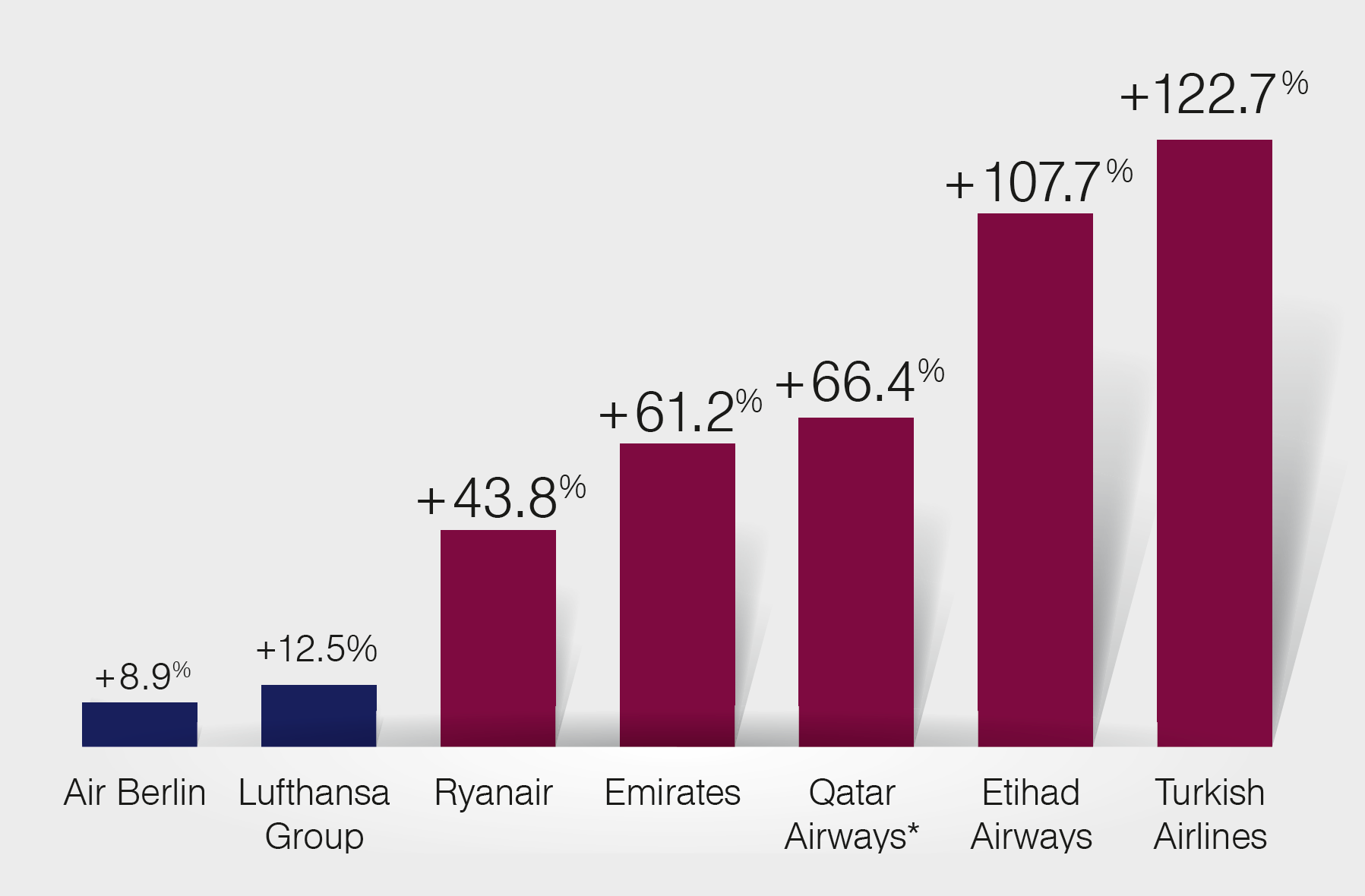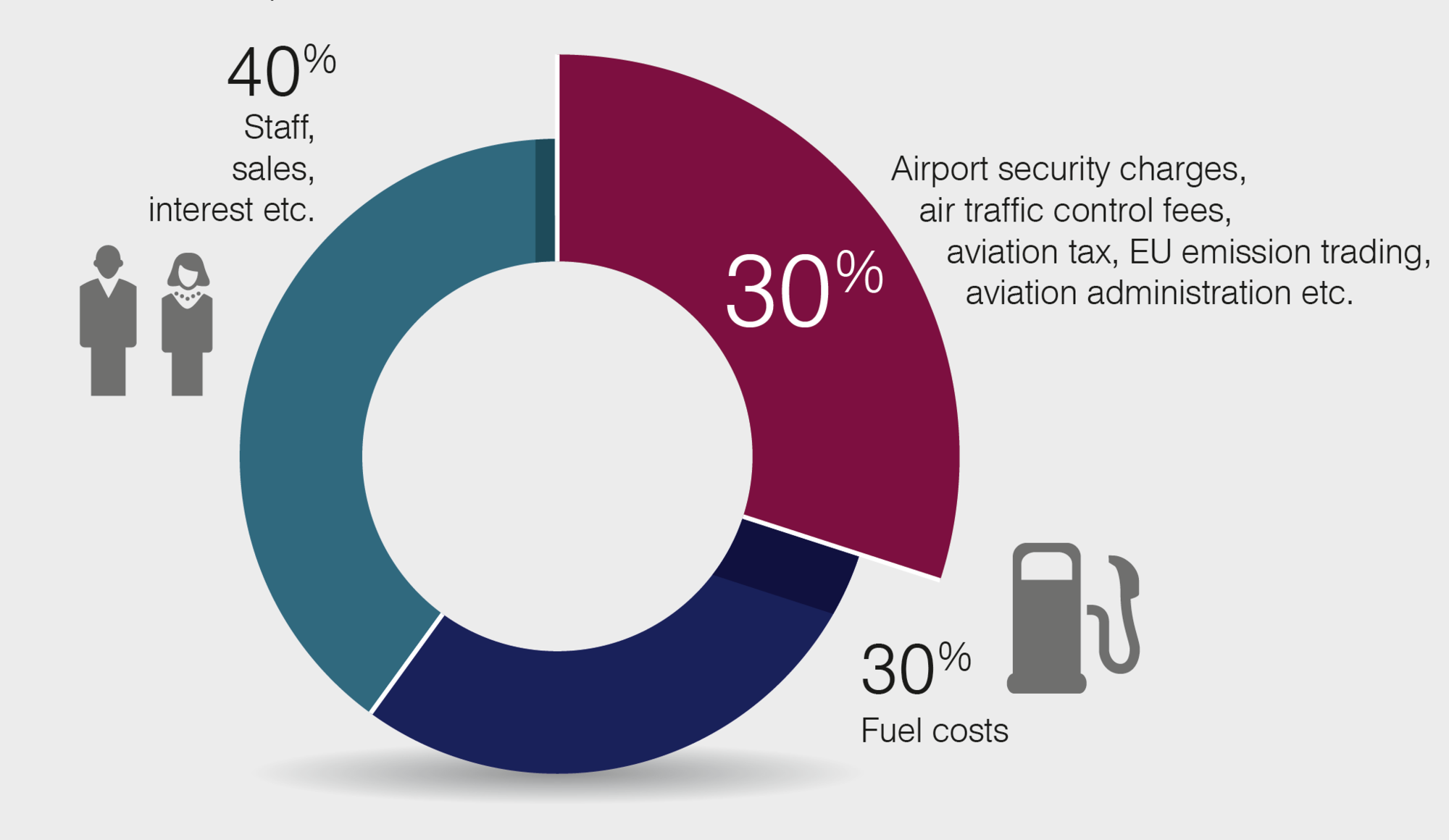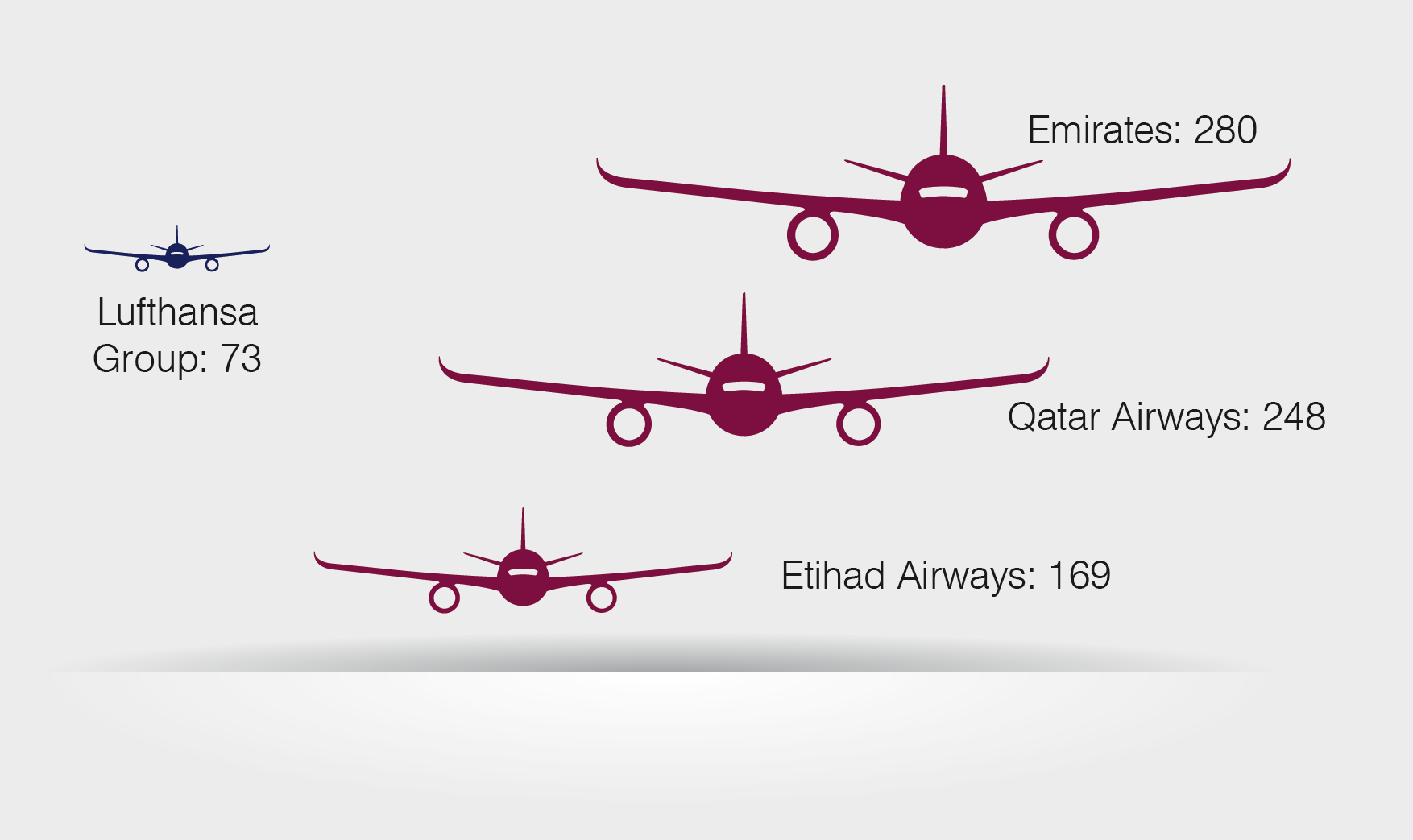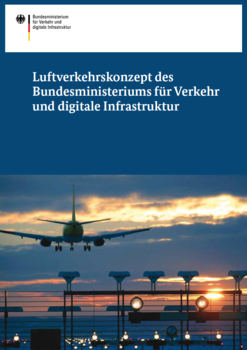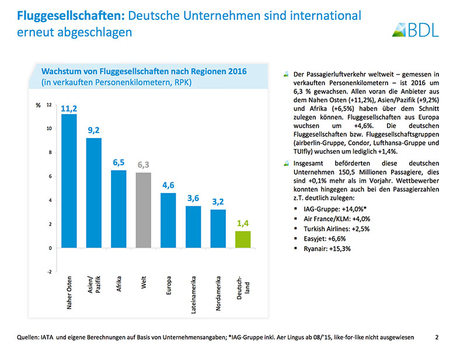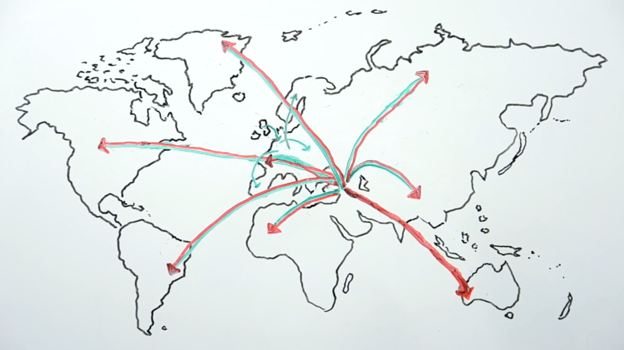Lead
Aviation concept:
A high benchmark for the incoming federal government
German Federal Transport Minister Dobrindt has now released the aviation concept, following years of discussion. The Lufthansa Group, with its 128,500 employees and around 110 million passengers in 2016, believes this is a blueprint for sustainable aviation made in Germany – and therefore a high strategic benchmark for the incoming federal government.
Political tailwind
- Alexander Dobrindt, Federal Transport Minister: “Aviator nations are wealthy nations. Aviation guarantees mobility, growth and employment.” 3/5/2017
- Volker Kauder, leader of the CDU/CSU group in the Bundestag: “The aviation tax is due for a change.” 31/3/2017
- Hubertus Heil, Secretary-General of the SPD: “The fight for fair playing rules in international aviation is key to the future of local aviation.” 31/3/2017
Expert report shows state-induced distortions of competition
The concept is based on a comprehensive study of the market and competition environment. Research institutes hired by the federal government confirm clear distortions of competition, resulting from special national restrictions which run contrary to any increases in efficiency at local companies: “The fiscal and regulative component of the operating costs borne by a German-based airline is relatively high, and has in recent years risen more sharply than general inflation in Germany”.
The Federal Ministry has now drawn the right conclusions: “The aviation companies playing the greatest part in serving Germany’s infrastructure must be strengthened. They are essential for strengthening and securing Germany as an aviation hub.”
Political tailwind
- Alexander Dobrindt, Federal Transport Minister: “Aviator nations are wealthy nations. Aviation guarantees mobility, growth and employment.” 3/5/2017
- Volker Kauder, leader of the CDU/CSU group in the Bundestag: “The aviation tax is due for a change.” 31/3/2017
- Hubertus Heil, Secretary-General of the SPD: “The fight for fair playing rules in international aviation is key to the future of local aviation.” 31/3/2017
The Lufthansa Group considers the top six issues to be:
Aviation tax
With a volume of around one billion euros per year since 2012, the unique position adopted in relation to the aviation tax weighs heavily on the competitiveness of German airlines, which, bearing almost two thirds, are particularly affected by it. The conditions under which the aviation tax was introduced have changed significantly. According to the aviation plan, “Germany is doing well economically, yet our aviation companies are fighting to remain competitive.” This apt summary of the situation can be further expanded on by looking further afield: Ireland, the Netherlands and Austria have long abolished or halved this growth halter. Germany must now finally follow suit.
Air security costs
In 2016 alone, air security costs in Germany totalled 656 million euros, paid exclusively by the airlines. The aviation plan has laid down a crushing verdict: The air security checks are “services aimed at maintaining security and order. (…) But it is not justifiable for only one industry to be bearing the costs incurred from preventing hazards for the good of the entire community.” The German government must start fulfilling its responsibility, just as it does in the rail industry, where it finances 80 percent of security costs.
Airport charges
Airlines pay over 2.7 billion euros a year in airport fees in Germany. The aviation plan addresses the relationship between airlines and airports, stating that “it is possible that some airports may monopolise the aviation companies when it comes to certain services.” The federal states, as approval authorities, are being called on to fulfil their responsibility for appropriate charges and encourage greater involvement by aviation companies in the process. Lufthansa finds it unacceptable that airports are increasingly retreating from aviation self-financing, and that all costs are borne onto the airlines alone. Airport fees have increased significantly in recent years, despite rising passenger numbers and declining capital costs. Additional capacity should only be created if the demand can be expected to be financed – both at present and ongoing.
EU emission trading
According to UN aviation organisation ICAO, growth in international aviation is to occur with minimal impact on climate from 2020 onwards. This is based on the CORSIA CO2 compensation system. The Lufthansa Group has been supporting this approach for years. What still remains unclear is how the EU emissions trading scheme will proceed for aviation. The aviation plan rightly insists on “avoiding double regulation of CO2 emissions in international aviation.”
Airport operating hours
The aviation plan addresses the issue of operating hours in detail. For airports of nationwide importance, “further restrictions on the already very limited operating hours at German airports compared to the rest of Europe and the world (including night-flight bans) would lead to considerable competitive disadvantages for the entire aviation industry and Germany as an economic hub.” Furthermore, “in the case of pre-existing night-flight restrictions, the strict regulations must be rendered more flexible so that airport users are not charged for processing delays beyond their control.” Unlike the hubs of many competitors in Europe and the Middle East, Lufthansa hub Frankfurt has been completely closed between 11 p.m. and 5 a.m. since 2011.
Deregulation
Germany already offers foreign airlines extremely liberal market access. “Based on the experience gained in recent years, further deregulation of the aviation market should go hand in hand with ensuring fair and comparable competitive and framework conditions. This is the only way to guarantee non-discriminatory competition. Deregulation must similarly not result in security, social and environmental standards being abandoned or lowered.” The Lufthansa Group has always shared this view.
Document – only in German
Aviation concept of the Federal Ministry of Transport
The aviation concept includes, firstly, the key findings of the assessment report to determine basic principles. Secondly, in 19 individual chapters, the concept proposes concrete suggestions for the strengthening and securing of Germany as an aviation location.
Quote: “It is the task of the Federal government and the European states to create, at least for the most part, competitive conditions in air traffic which provide equality of opportunity by means of a sound legal framework.”
Document – only in German
Annual figures on the situation in aviation for 2016
Air traffic remains on a significant growth course worldwide, but the German air traffic industry is falling behind, as can be seen from the annual figures for 2016 from the Federal Association of the German Air Traffic Industry.
Clip
Europeans for Fair Competition
Hundreds of thousands of employees and their representatives are involved in the alliance Europeans for Fair Competition (E4FC). Their core demand is to have fair rules in aviation within verifiable air traffic agreements with non-member countries! In this short film, the initiative explains existing competitive distortions and the consequences for Europe.
